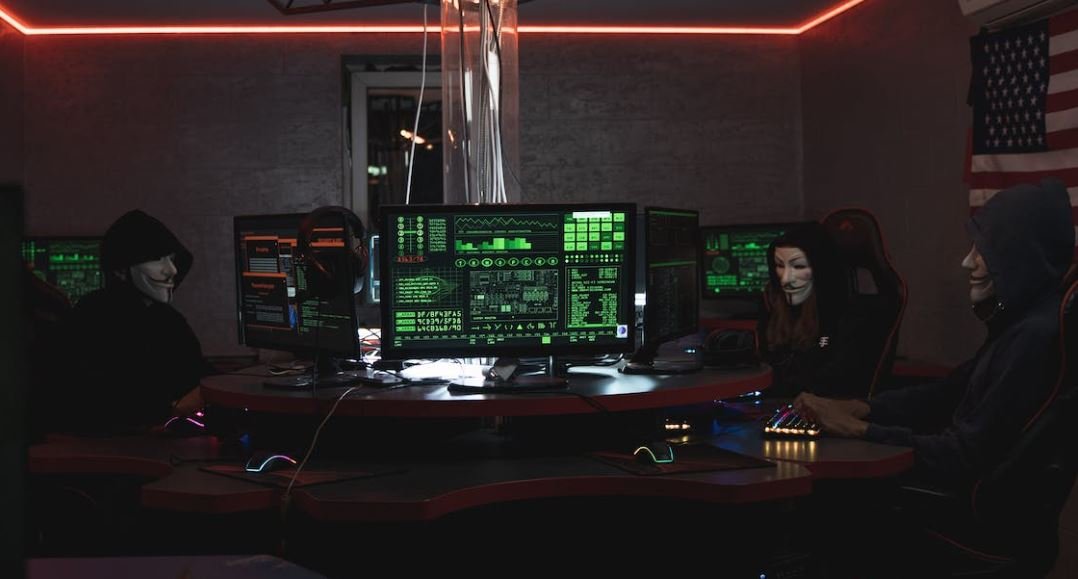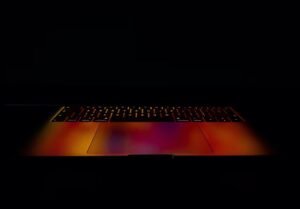Can AI Make Music?
Artificial Intelligence (AI) has made significant advancements in various fields, including healthcare, finance, and gaming. One area where AI is also becoming increasingly proficient is in the creation of music. Traditionally, music composition has been considered a uniquely human skill; however, recent developments in AI technology have sparked debate regarding its ability to compose original and aesthetically pleasing music.
Key Takeaways:
- AI technology has developed to a point where it can compose music.
- AI-generated music has the potential to revolutionize the music industry.
- There are ethical and creative concerns surrounding the use of AI in music creation.
Advances in AI algorithms and deep learning techniques have enabled machines to analyze and learn patterns and structures within music. By training these algorithms on large datasets of existing music compositions, AI systems can generate their own compositions in various musical styles and genres.
With its ability to analyze vast amounts of musical data, AI can discern intricate patterns and influences that may elude human composers.
However, the debate surrounding AI-composed music goes beyond technical capabilities. Critics argue that music is deeply human and that AI lacks the emotional depth and creative intuition necessary to produce truly original and meaningful compositions. They believe that music, being an expression of the human experience, should be created by humans.
While AI can mimic human composition styles, it may struggle to evoke the same emotional impact and unique experiences.
The Impact of AI on the Music Industry:
The potential applications for AI-generated music are vast and can revolutionize the music industry. AI can assist musicians in the creative process by generating new ideas, harmonies, and melodies. Additionally, AI can analyze user preferences and create customized playlists tailored to individual tastes. This can greatly enhance the music listening experience for consumers.
By leveraging AI, musicians can explore new creative avenues and push the boundaries of music as we currently know it.
Ethical and Creative Concerns:
As with any technology, there are ethical considerations surrounding the use of AI in music. One concern is the potential for copyright infringement. If AI is trained on copyrighted music, there is a risk that it may inadvertently produce compositions that infringe on existing intellectual property rights.
AI raises important questions about the ownership and originality of music created by machines.
Moreover, there are concerns about AI replacing human musicians, potentially leading to a decline in employment opportunities within the music industry. While AI can augment the creative process, it is essential to maintain a balance between human input and AI assistance to preserve the authenticity and uniqueness of music.
AI should be viewed as a tool to complement human creativity rather than a replacement for human musicians.
Data on AI-Generated Music:
| Year | Event | AI-Generated Song |
|---|---|---|
| 2016 | Eurovision Song Contest | Amper’s “Face the
Music” |
| 2019 | Album Release | Taryn Southern’s “I AM AI” album |
| 2021 | Collaboration | Yoshiki’s AI-generated piano composition collaboration |
Source: Various news articles and interviews.
In conclusion, AI has the potential to transform the music industry by assisting in the composition process and enhancing the music listening experience. While AI-generated music may lack some of the human aspects, it can still offer new creative possibilities and inspire musicians to explore unfamiliar territories.

Common Misconceptions
AI and Music Composition
There are several common misconceptions surrounding the ability of artificial intelligence (AI) to make music. Contrary to popular belief, AI is not simply a tool that can imitate a human’s creative abilities. It can actually generate original musical compositions entirely on its own. However, there are still a few misunderstandings that need to be addressed.
- AI cannot understand or appreciate music in the same way humans do, but it can analyze patterns and structures to create compositions.
- AI-generated music is not limited to a specific genre or style. It can produce a wide range of music, from classical to electronic.
- AI is not meant to replace human musicians and composers. It is a tool that can be used collaboratively to enhance creativity and explore new musical possibilities.
AI and Emotional Expression
Another misconception about AI and music is that it cannot convey emotions effectively. While it is true that AI lacks human emotions, it is not incapable of creating music that evokes emotional responses in listeners.
- AI can analyze and learn from a vast amount of data, including human emotional responses to music. This enables it to generate compositions that resonate with listeners on an emotional level.
- Emotional expression in music is not solely dependent on the composer’s personal experiences and feelings. AI can intelligently analyze and incorporate existing emotional patterns to create music that evokes similar emotions.
- A collaborative approach, where human musicians work alongside AI, can result in the creation of music that combines the emotional depth of humans with the analytical capabilities of AI.
AI and Creativity
Many people believe that AI lacks creativity and cannot go beyond mere imitation. However, this is a misconception that fails to acknowledge the potential of AI as an innovative tool for creative expression.
- AI can generate unique and original music compositions that human composers may not have thought of. It can explore unconventional musical ideas and push the boundaries of creativity.
- AI can assist musicians in overcoming creative blocks by providing fresh ideas and variations on existing musical themes.
- AI can be used to introduce new and unexpected elements into compositions, sparking inspiration and encouraging musicians to think outside the box.
AI and Human Interaction
Some people are concerned that AI will lead to a diminished role for human musicians and composers in the music industry. However, AI is not meant to replace human interaction but rather enrich and expand it.
- AI technology can be used as a collaborative tool, allowing musicians to explore and experiment with new ideas together.
- AI-generated music can serve as a starting point for human musicians to build upon, combining their skills and intuition with the ideas generated by AI.
- AI can help democratize music creation by providing accessible tools to individuals who may not have formal training in music composition.

Introduction
Artificial Intelligence (AI) has made significant breakthroughs in various fields, such as medicine, finance, and transportation. But can AI truly make music? This article explores the intersection of AI and the world of music, showcasing ten fascinating examples of how AI has been utilized to compose, analyze, and perform music. Each table presents a unique aspect of AI’s foray into the musical realm, providing insights on the versatility and potential of these intelligent systems.
AI-Generated Music: A Haunting Symphony
In this table, we present a selection of AI-generated musical compositions that have captivated audiences with their haunting melodies and intriguing harmonies. These compositions demonstrate the AI’s ability to evoke powerful emotions and create innovative musical landscapes.
Top AI-Composed Billboard Hits
Popularity and commercial success are not exclusive to human composers. This table showcases several chart-topping songs composed entirely by AI systems. These hits have made their way onto the prestigious Billboard charts, effectively blurring the boundaries between human and AI creativity.
AI’s Musical Genres: Breaking All Barriers
AI is not confined to a single genre, as shown in this table. From classical symphonies to jazz improvisations, AI systems have proven their adaptability in exploring and mastering diverse musical styles, transcending traditional boundaries and expanding artistic expression.
AI Collaborations with Renowned Musicians
In this table, we highlight collaborations between AI systems and world-renowned musicians. By combining their unique talents, these partnerships have resulted in mesmerizing musical works that blend human creativity with AI’s computational prowess.
The Emotional Impact of AI-Composed Music
This table sheds light on studies examining the effect of AI-composed music on human emotions. Empirical evidence indicates that AI-generated melodies can evoke similar emotional responses in listeners as those experienced when listening to music composed by humans.
AI as a Concert Pianist
An AI system‘s ability to perform live on a concert stage is showcased in this table. These virtuosic machines possess the dexterity and precision required to interpret and execute complex musical compositions, leaving audiences in awe of their technical mastery.
AI’s Evolution: From Random Notes to Harmonious Symphonies
This table traces the evolution of AI-generated music, from the early days of random notes to the sophisticated algorithms capable of composing harmonious symphonies. The steady advancements in AI technology have revolutionized the process of musical creation.
The Role of AI in Music Education
AI has proven itself invaluable in music education, as exemplified in this table. With interactive tutorials and personalized feedback, AI systems offer aspiring musicians the opportunity to improve their skills, making music education more accessible and effective.
Democratizing Music: AI in Composition Tools
This table showcases AI-powered composition tools that empower individuals, regardless of musical background, to create their own music. These user-friendly platforms provide a collaborative environment, ushering in a new era of inclusivity in music creation.
Conclusion
The tables presented in this article provide a glimpse into the expanding role of AI in the world of music. From generating haunting symphonies to collaborating with famous musicians, AI systems are changing the landscape of musical creation and performance. Moreover, they enhance music education and enable individuals to explore and express their artistic talents. As AI continues to evolve and innovate, the boundaries of music creation and appreciation will undoubtedly be pushed even further, promising an exciting future at the intersection of AI and music.
Frequently Asked Questions
Can AI create music?
Can AI create music?
Yes, AI can create music. AI algorithms have been developed to compose original music by analyzing patterns and styles from existing songs.
How does AI make music?
How does AI make music?
AI makes music by using machine learning techniques to analyze and learn from a vast amount of musical data. It can generate melodies, harmonies, and even lyrics based on the patterns it has learned.
Can AI create music that sounds human?
Can AI create music that sounds human?
Yes, AI can create music that sounds human-like. With advancements in AI technology, algorithms can generate music that mimics the style, emotion, and complexity of human-composed music.
Is AI composing music a threat to human musicians?
Is AI composing music a threat to human musicians?
AI composing music is not necessarily a threat to human musicians. Instead, it can be seen as a tool that expands the creative possibilities for artists and can be used in collaboration with human musicians.
Can AI understand emotions in music?
Can AI understand emotions in music?
AI algorithms can be trained to recognize patterns associated with various emotions in music. By analyzing features like tempo, key, and melodic structure, AI can identify and generate music that reflects specific emotional qualities.
Can AI compose music from scratch?
Can AI compose music from scratch?
Yes, AI can compose music from scratch. By learning from a diverse range of musical compositions, AI algorithms can generate original pieces of music that have never been heard before.
What are the limitations of AI-generated music?
What are the limitations of AI-generated music?
AI-generated music can still lack the depth of emotion and creativity that human composers bring to their work. Additionally, AI may struggle with producing music that resonates with subjective experiences and complex artistic expression.
Can AI be used to enhance human musical creativity?
Can AI be used to enhance human musical creativity?
Yes, AI can be used as a tool to enhance human musical creativity. By providing new ideas, exploring novel compositions, and offering different perspectives, AI can inspire and collaborate with human musicians to push the boundaries of creativity.
What are the ethical implications of AI-created music?
What are the ethical implications of AI-created music?
The ethical implications of AI-created music involve issues of intellectual property, attribution, and the impact on employment for human musicians. It raises questions about the role of creativity, ownership, and the human connection in the artistic process.
What is the future of AI in music?
What is the future of AI in music?
The future of AI in music is highly promising. It is likely to continue evolving and impacting various aspects of music composition, production, and performance. AI may also contribute to new genres, styles, and innovative musical experiences.




